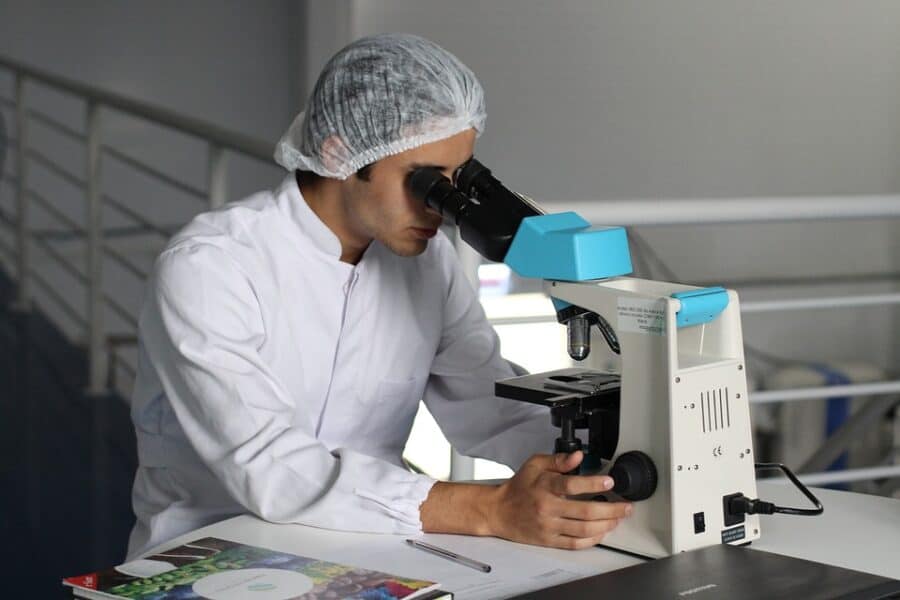Space travel, ageing & a golden opportunity
Returning astronauts are displaying symptoms of ageing at a quicker rate. This provides an incredible opportunity to perform anti-ageing research on astronauts in space and on Earth.
Growing older has serious effects on the body. Our muscles shrink, our cells degenerate and our bones become brittle. More serious age-related problems like cardiovascular disease and cognitive decline also cause problems as the years go on.
Yes, growing old stinks, but you may be surprised to learn that these symptoms can also come from space travel. Space travel has dramatic effects on the human body, and people who spend time in outer space experience the symptoms of ageing faster than those of us who stay put on Planet Earth.
A recent run of 29 papers published cy Cell’s journals investigated the health ramifications that visiting outer space had on astronauts. These studies indicated that space alters the chemical balance in cells, gene functions, and mitochondria, also known as the cell’s “powerhouse”.
Mimicking age-related disorders through space travel
Time in space can produce negative health effects that mimic age-related disorders like osteoporosis and cancer. Although the similarities of space travel to ageing provide great concern for extensive missions, including travelling to Mars, outer space also provides an introducing opportunity to study ageing (and anti-ageing) processes in the human body.
Scientists believe that the heart, bones, blood vessels and muscles deteriorate about 10 times faster in space than in natural ageing on Earth. Basically, scientists can run experiments on astronauts on the International Space Station (ISS) regarding ageing processes.
But the ramifications of space travel on the human body are not the same as on Earth. In fact, many of the changes that happen in space are reversed once the astronauts return to Earth. This doesn’t mean that the comparisons can’t be used to conduct fascinating research, and scientists say they can be used to gain a greater understanding of the chronic process of ageing. Perhaps research could be conducted into new anti-ageing methods when in outer space?
Space travel & its effect on the body
Space dramatically influences the cell types in numerous ways. Michael Roberts, Interim Chief Scientist of the ISS National Laboratory, told Nation Geographic that space has an ongoing effect on the human body when up there.
“It’s not a single acute exposure to toxic agents, for example.” Roberts said. “It’s something that’s long-term, chronic, and persistent.” Space travel dramatically alters the human’s body’s ability to function efficiently, thus restarting the way the cells respond.
Outer space contains a microgravity atmosphere, and this makes the heart, muscle and bones don’t have to work as hard as they do on Earth. This, in turn, makes them weaker, with fluid-filled tissues potentially changing shape because liquid flows differently in a microgravity atmosphere, thus changing the shape of bodily organs. Furthermore, increased background radiation in outer space can exacerbate DNA damage and increase risk of cancer.
The Kelly twins & ageing in space
The NASA Twins Study was the first research conducted on outer space’s effect on ageing. Brothers Scott and Mark Kelly took part in the research, with Scott being sent into orbit whilst Mark stayed on the ground. 10 research team monitored effects on Scott’s body during his year-long stint in outer space. The researchers then compared changes in the bodies of both identical twins, with startling results. They found great differences between the brothers’ microorganisms in the gut, cognitive abilities, cardiovascular systems and gene expression profiles.
Perhaps even more shocking, the study found Scott’s telomeres had elongated in space. Telomeres are the areas of DNA stationed at the ends of chromosomes. They protect the rest of the DNA from damage, fray and decay. Telomere lengths reduce with age and how fast they shorten is a vital indicator of ageing and general health.
Scott’s telomeres rapidly shrunk upon returning to Earth. Although space caused them to elongate, it wasn’t before long that they shortened to smaller lengths than he had in the first place. Elongated telomeres have been linked to cancer whilst shortened telomeres have been linked to cardiovascular disease. So, rapid changes in the length of telomeres can have negative health impacts.
Some health impacts of space travel appear to equilibrate after a certain amount of time in space like changes in the lungs and heart. However, there still hasn’t been enough research conducted and astronauts haven’t been in space long enough to determine whether these changes are ongoing.
Space & the anti-ageing opportunity?
These environmental factors and the way in which humans age in space provides an incredible opportunity to research anti-ageing in the body. Scientists have already achieved amazing breakthroughs when researching human health in outer space. For example, there are tardigrades, found to resist space’s extreme environmental threats, and which could also potentially help in the fight against ageing.
Perhaps, too, there is the potential to study the effect of anti-ageing boosters in outer space. Molecules like NAD+, which help regulate cell functions and ward off age-related illnesses.



